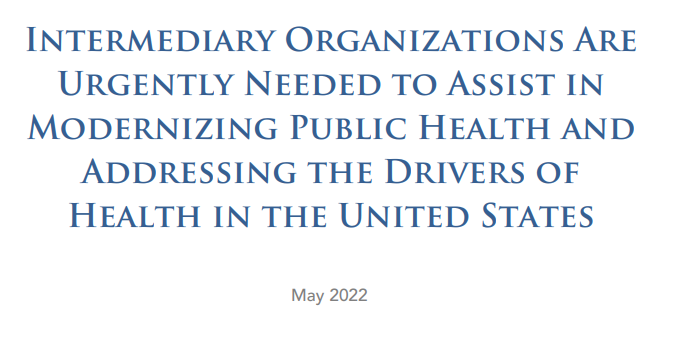
Intermediary Organizations Are Urgently Needed to Assist in Modernizing Public Health and Addressing the Drivers of Health in the United States
The issue brief describes the different roles intermediaries can play; provides examples of where they have been used in practice; and identifies the risks, benefits, and possible innovations of intermediaries as well as policy approaches that might facilitate their appropriate use.
With the passage of ARPA and extensive funding for general recovery (e.g., fiscal relief dollars), and targeted public health funds for modernization, the use of intermediaries can be even more important — not just to move money and hire people — but for a broader variety of functions that includes planning and engaging the various sectors needed to rebuild society and public health, and rebuilding trust and support for public health across diverse communities.

 Back to Resources
Back to Resources